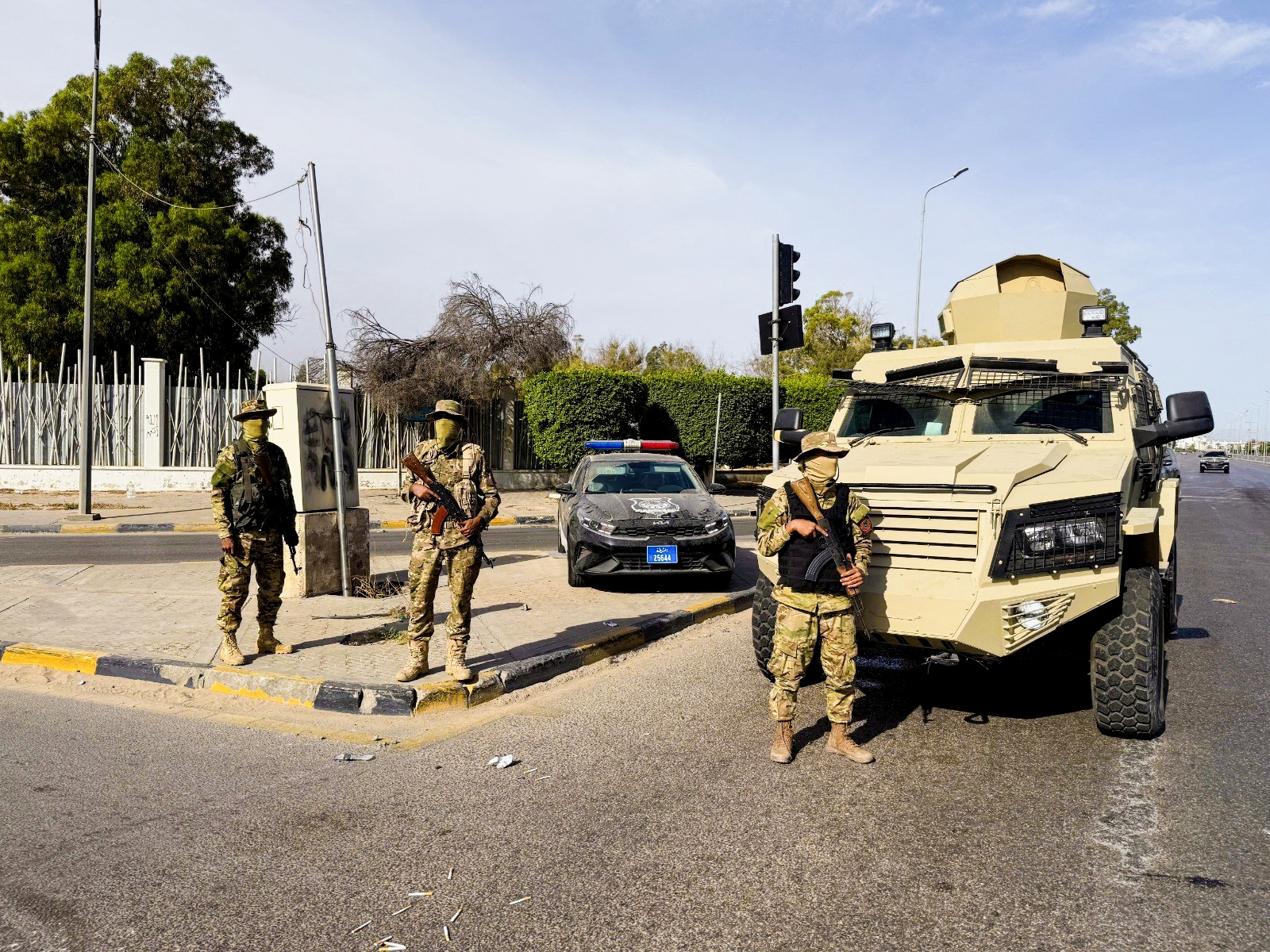The Libyan capital, Tripoli, is witnessing a serious escalation in security tensions, after intensive military movements were observed in recent hours, indicating the possibility of an imminent armed confrontation between rival factions, at a time when the voices of residents rejecting a return to the cycle of violence in their city are rising.
Widespread footage showed large military convoys loaded with heavy weapons entering the vicinity of the capital, coming from the city of Misrata east of Tripoli, and others from the city of Gharyan to its south.
There was also a heavy deployment of armed vehicles and cars in several vital neighborhoods within the city, indicating clearly that the option of military resolution is now on the table, and perhaps in the process of being executed.
* Popular Rejection and Field Escalation
These developments were met with widespread rejection from the residents of Tripoli, as the Tajoura municipality issued a strongly worded statement yesterday, in which the residents expressed their complete rejection of turning their area into a passage for armed brigades or a base for any military force, asserting that the entry of any military convoy through their lands is considered "an infringement on the residents of the area," and demanding that security authorities take responsibility for protecting civilians and preventing any armed clashes.
In the same context, the residents of the Souq Jumaa area expressed their firm rejection of turning Tripoli into a new battlefield, urging the UN mission in Libya to intervene urgently to condemn any movements aimed at escalating the military situation, warning of dire consequences that could affect everyone.
* Anticipated Battle?
These developments come amid circulating news that militias loyal to the Government of National Unity are preparing to launch a large-scale military operation against their armed opponents within the capital, primarily the "Deterrence Agency for Combating Terrorism and Crime" affiliated with the Presidential Council, which heightens fears of the city slipping into an open battle.
* Local and International Vigilance
The Libyan street and the international community are cautiously monitoring the outcome of these movements, amidst calls for the necessity of prioritizing reason and favoring political solutions over the language of arms.
Eyes are on the positions of local and international parties in the coming hours, which could be decisive in determining whether Tripoli is on the brink of explosion, or if popular pressures and political mediation will succeed in sparing the capital from a new disaster.
In light of this escalation, the future of Tripoli remains hanging in a fragile balance between war and peace, amidst increasing demands to immediately halt military mobilizations and resume comprehensive national dialogue to spare the country further division and destruction.

